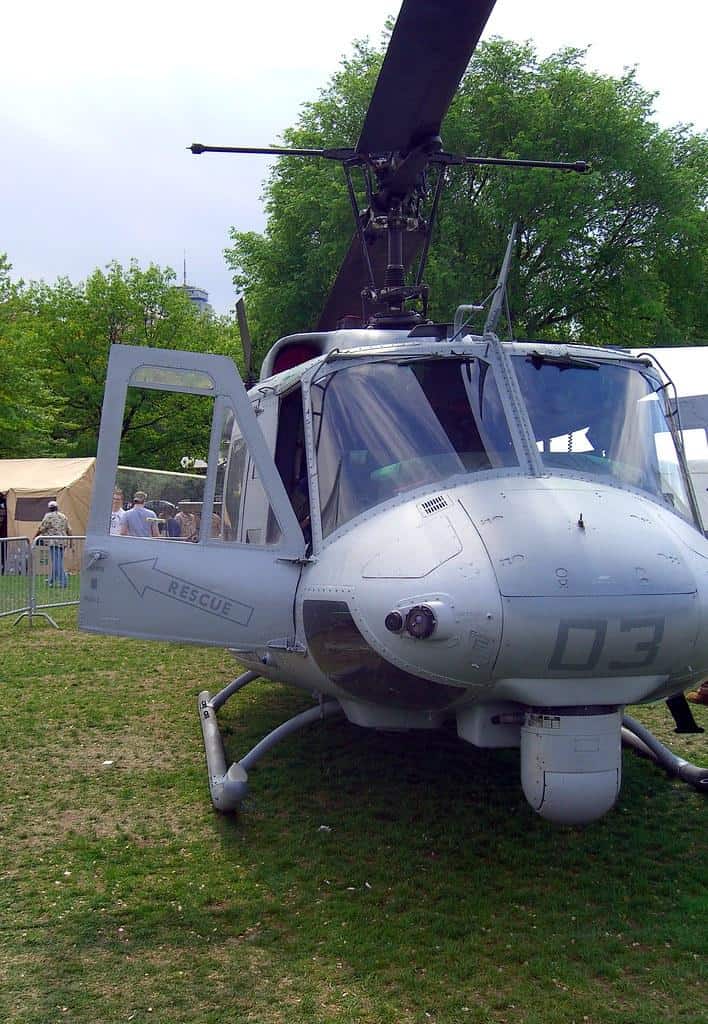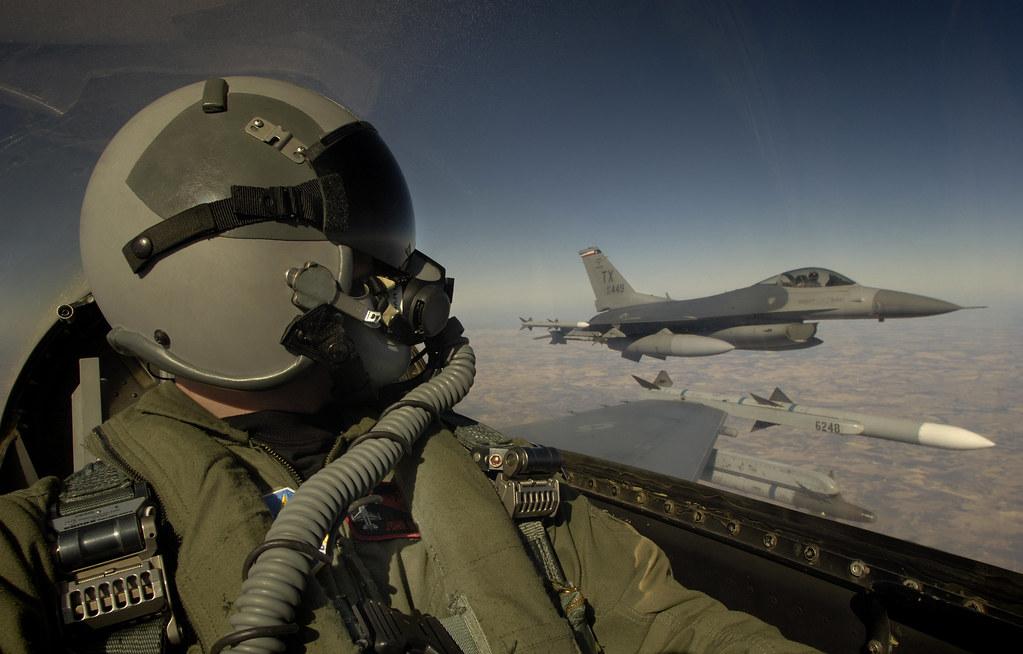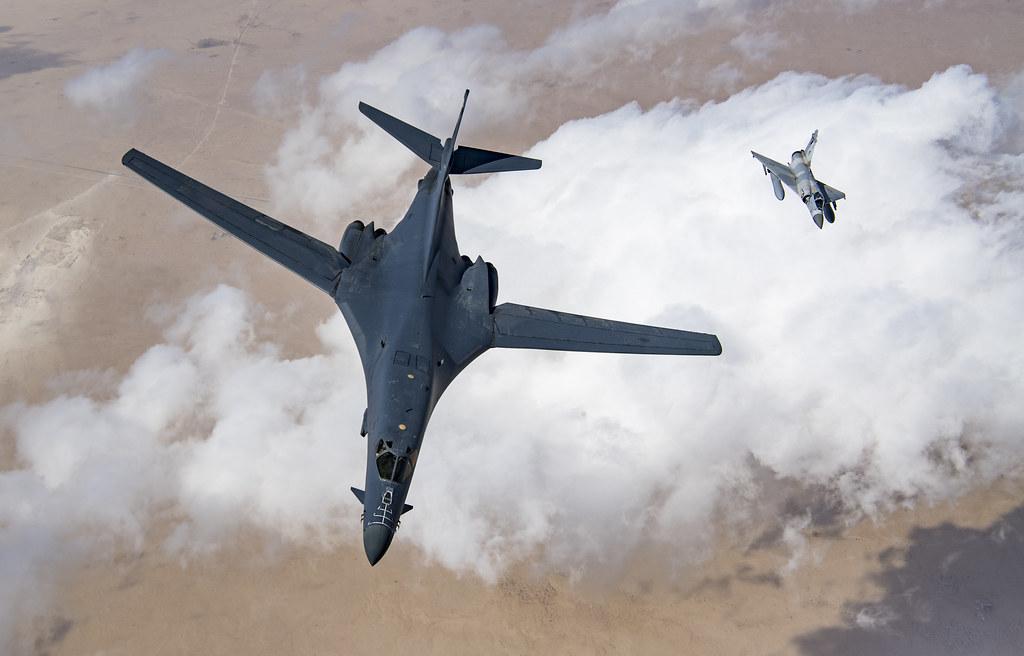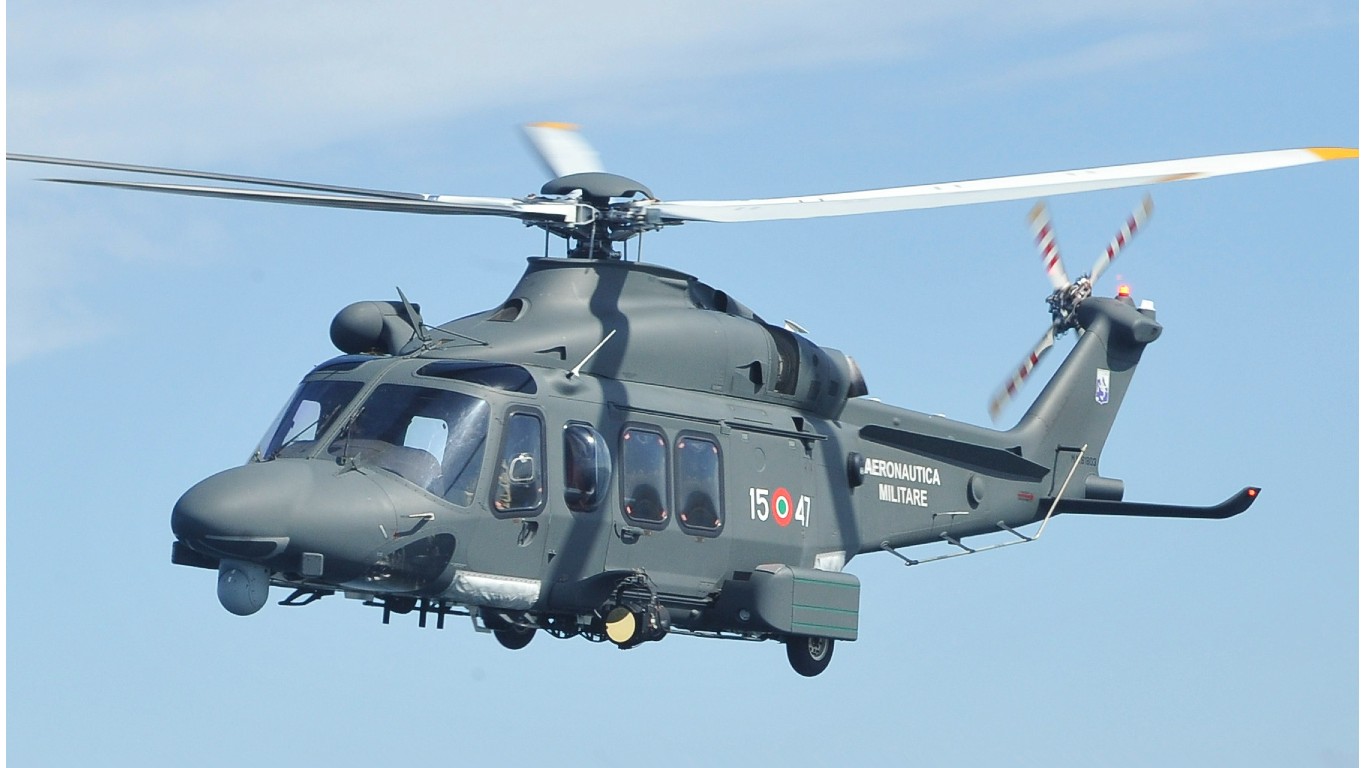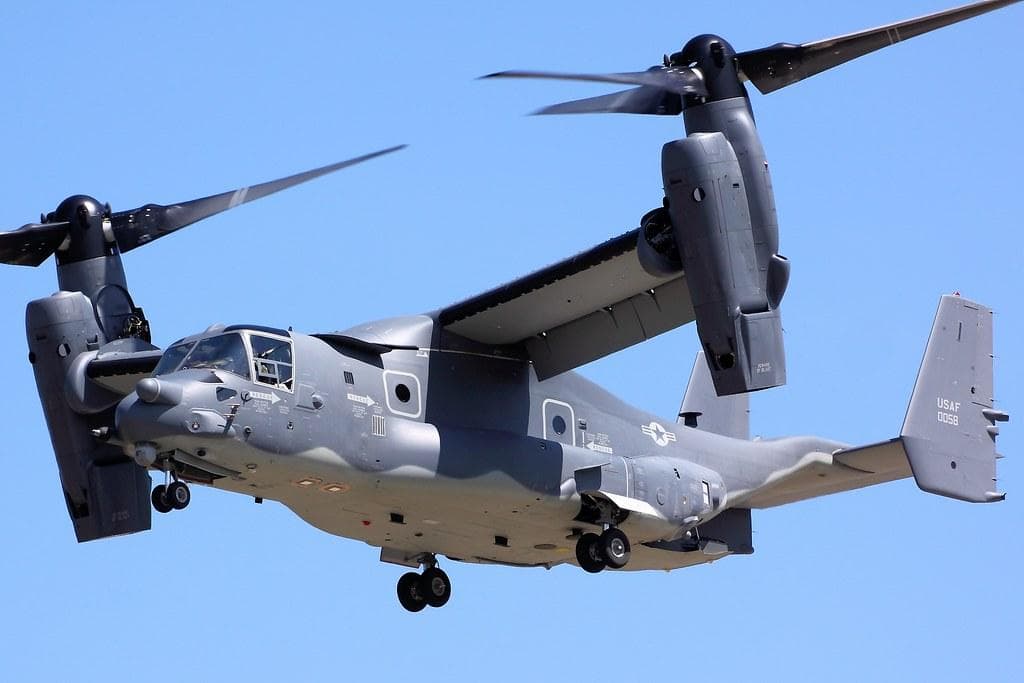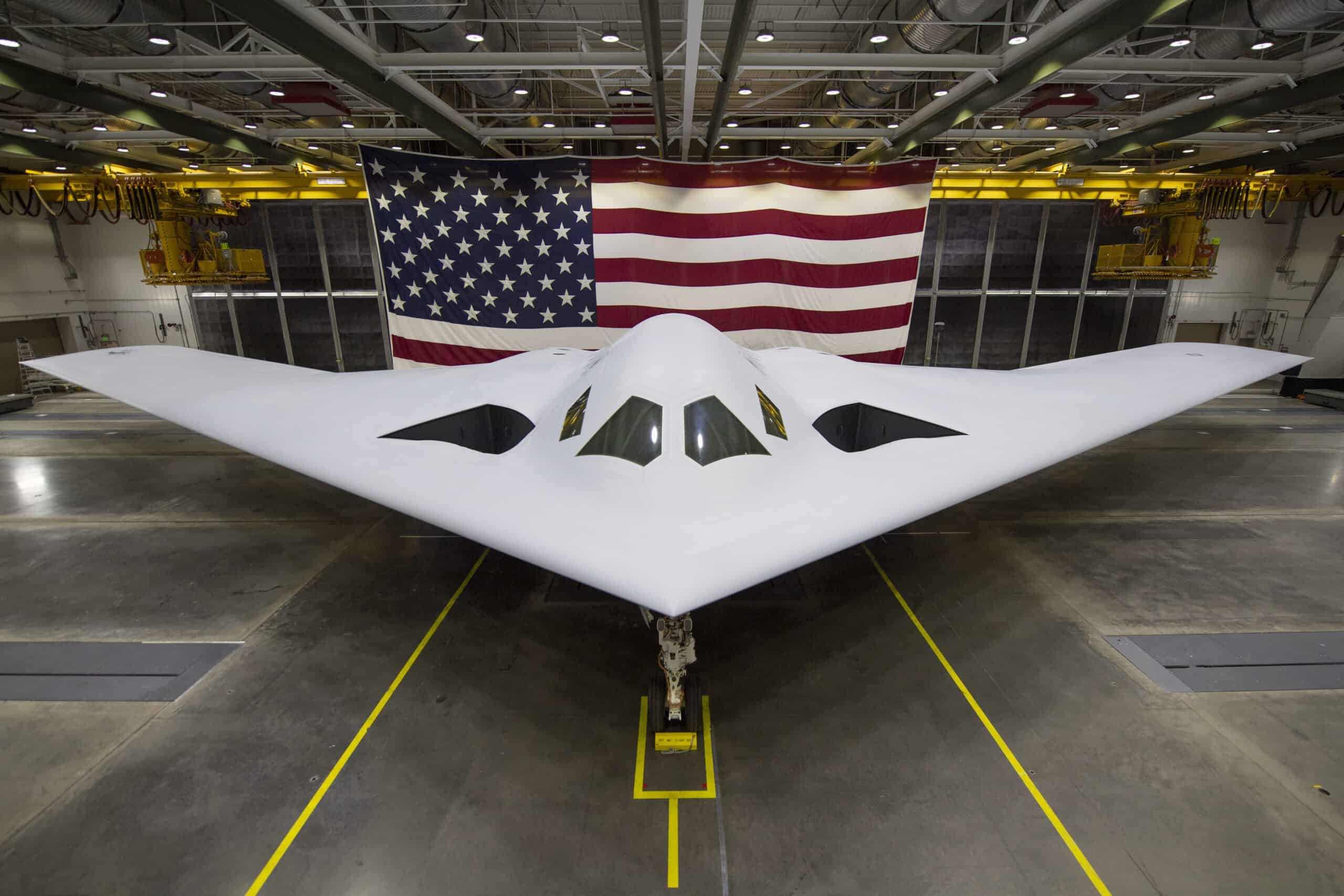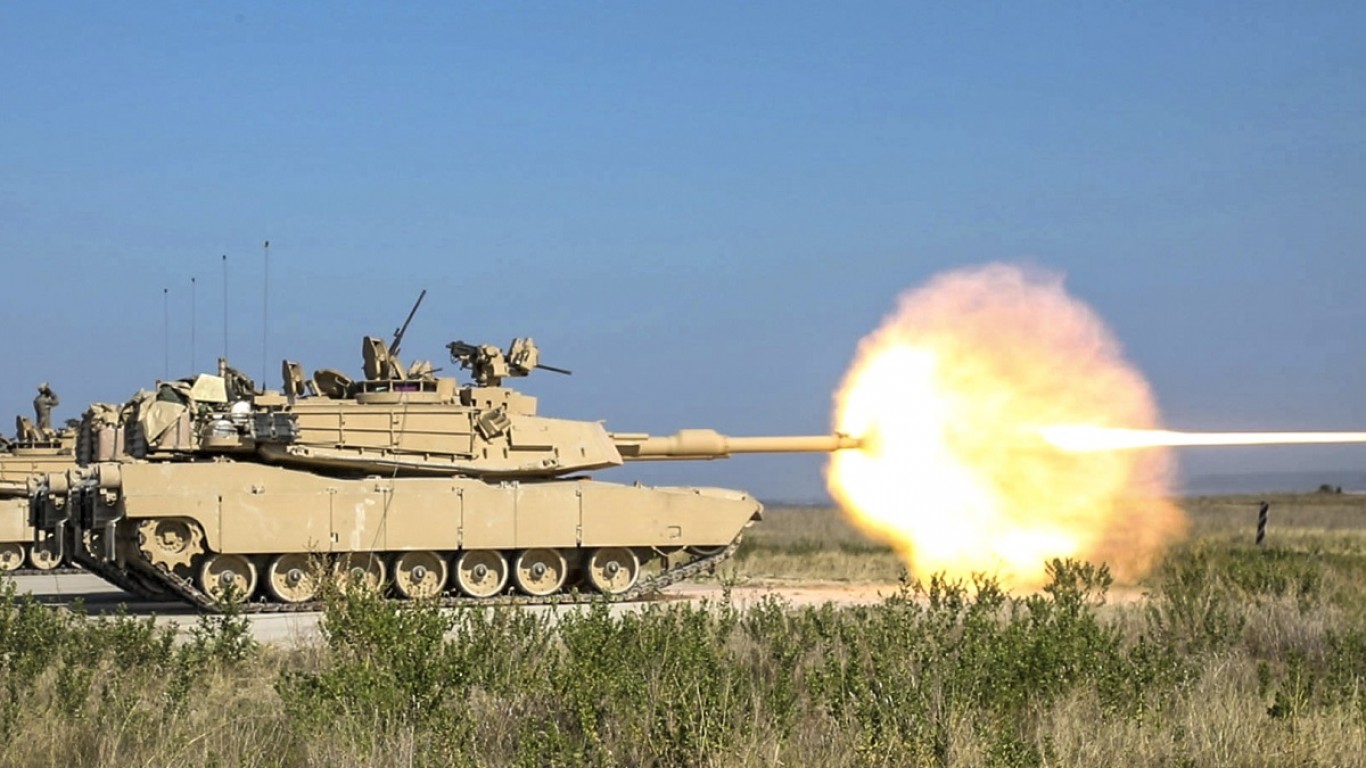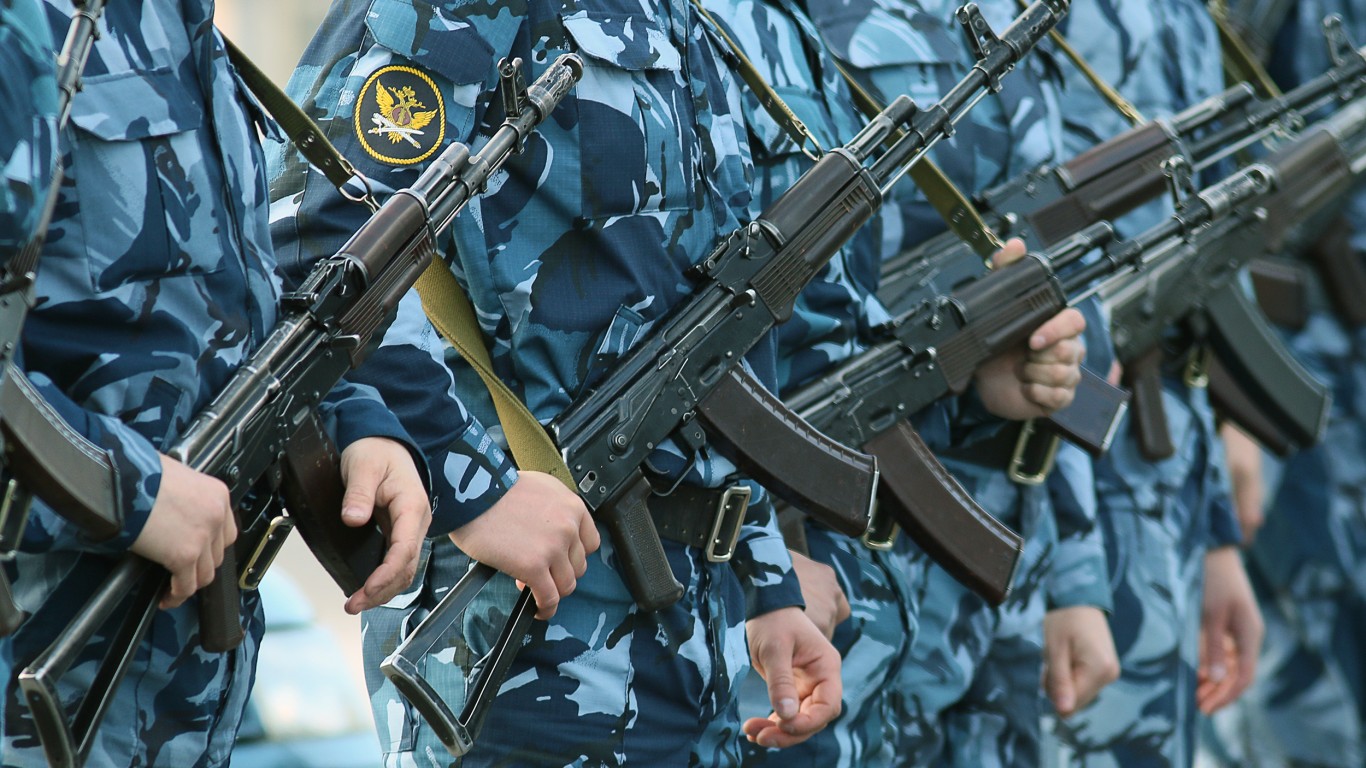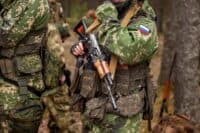
Earlier this month, the new Russian Su-57 Felon debuted at the China International Aviation and Aerospace Exhibition to somewhat mixed reviews and criticism. The fifth-generation stealth fighter was put on full display, and many are framing it as a direct rival to the American-made F-35 Lightning II or the F-22 Raptor. (This country is buying the most F-35 Lightning II fighter jets, and it’s not even close.)
It should be noted that the Su-57 Felon is Russia’s latest iteration of Sukhoi fighter jets designed to compete with American aircraft. Even further, the China International Aviation and Aerospace Exhibition is meant to act as a medium to attract international buyers who might be interested in stealth aircraft that they are not capable of purchasing from the United States.
Also, it is yet to be seen how the Felon will match up to the Lightning II or Raptor in actual combat. However, in terms of the specs, the Felon is faster with top speeds of 1,616 mph, which compare to the Raptor (1,599 mph) and the Lightning II (1,199 mph).
While the Su-57 Felon might be newer than most of the American aircraft, there’s an argument to be made if it can compete on a technological level. At the same time, the F-35 is already in mass production and greatly outnumbers any other aircraft in its generation. Quantity has a quality of its own.
24/7 Wall St. is taking a closer look at the newest combat aircraft in the U.S. Air Force. To identify the newest combat aircraft used by the U.S. Air Force, 24/7 Wall St. reviewed data from the 2024 World Air Forces report from FlightGlobal, an aviation and aerospace industry website, and ranked the aircraft chronologically. Additionally, we’ve included supplemental information on the type of aircraft, how many are in active service, top speed and armament.
Here is a look at the newest U.S. Air Force combat aircraft currently in service:
Why Are We Covering This?
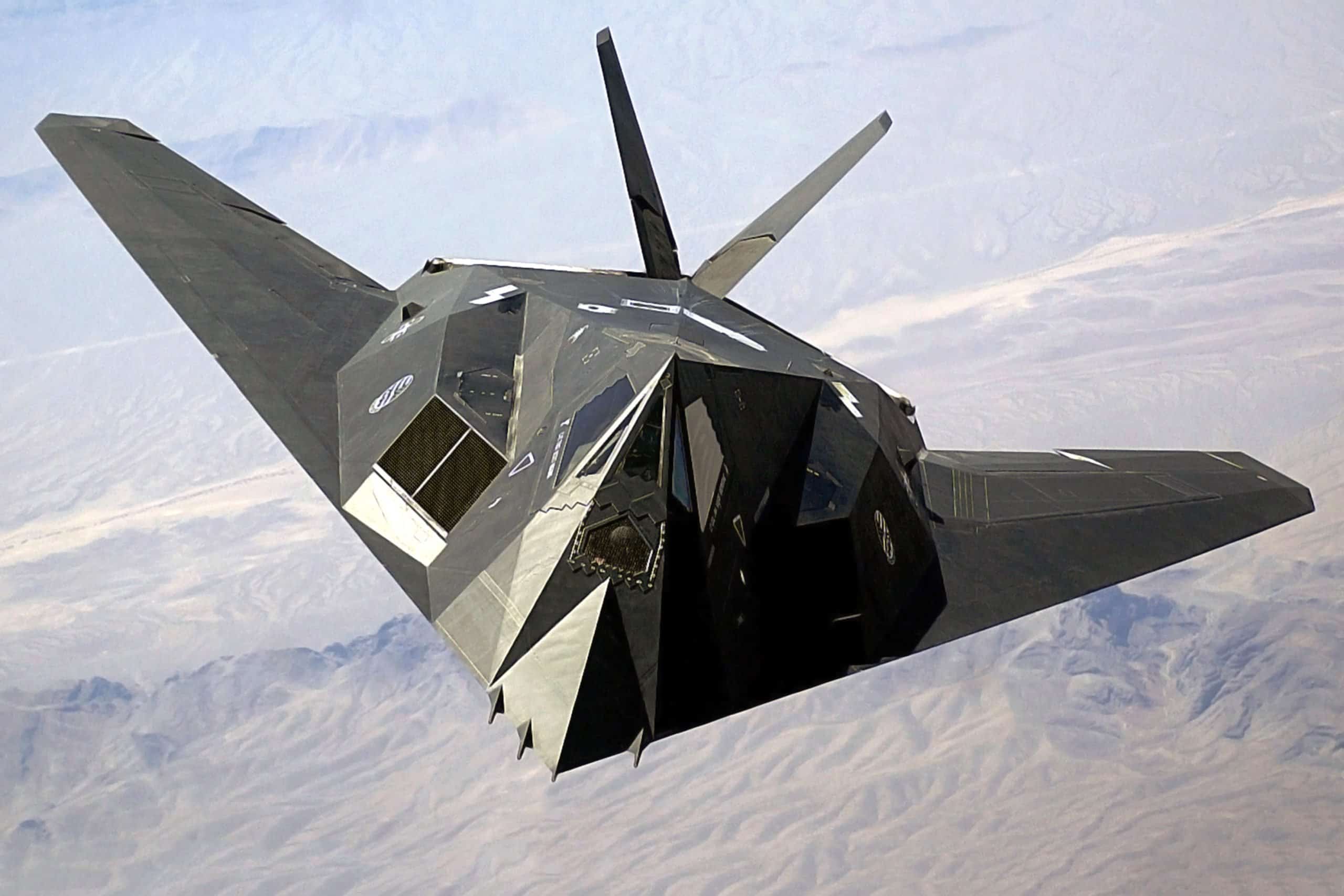
Understanding the aircraft in the US Air Force is important because these aircraft play a pivotal role in maintaining national security and global stability. Each aircraft is designed for specific missions, from air superiority to strategic bombing and reconnaissance, which are essential for defending the country and projecting power abroad. Also knowing which aircraft are in service give context to military capabilities and a better understanding of national defense.
16. B-52H Stratofortress
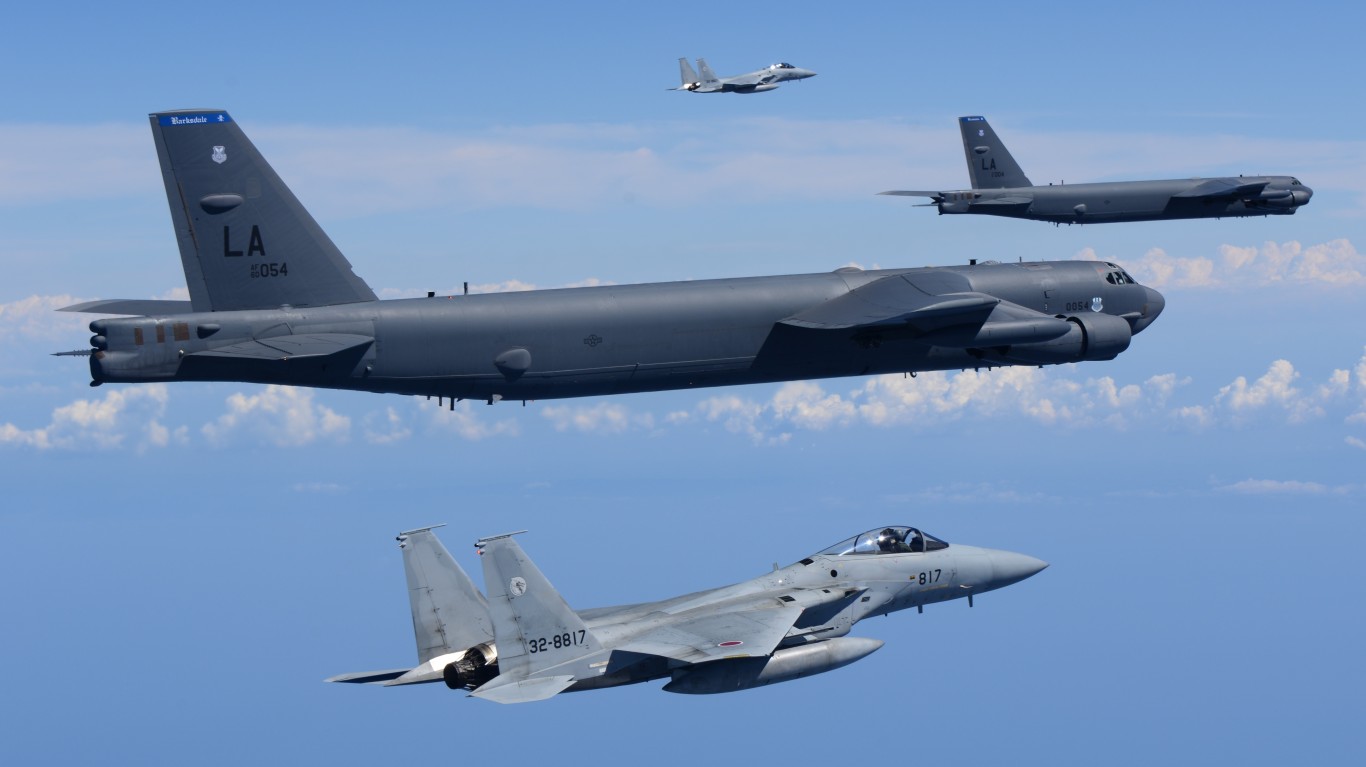
- Type: Long range strategic heavy bomber
- Year introduced: 1955
- Active aircraft: 72
- Top speed: 595 mph
- Armament: ACLM cruise missiles, Harpoon missiles, CALCM cruise missiles, joint direct attack munitions, freefall nuclear bombs
The B-52 is one of the longest serving aircraft in the U.S. Air Force, introduced in 1955. It was originally developed in the post-World War II years to succeed the B-29 Superfortress, which dropped the bomb on Japan. The B-52s were designed to carry larger payloads than the B-29, including nuclear weapons. The Stratofortress acted as a strong nuclear deterrent throughout the Cold War as well.
15. UH-1N Twin Huey
- Type: Multi-role utility helicopter
- Year introduced: 1970
- Active aircraft: 64
- Top speed: 150 mph
- Armament: 12.7mm GAU-16 machine gun, 7.62mm machine guns, 70mm rocket pods
The UH-1N Twin Huey is a multi-role utility helicopter introduced in 1970, with a top speed of 150 mph and a wide range of armaments, including 12.7mm GAU-16 machine guns and 70mm rocket pods. It was manufactured by Bell Helicopter, and it has been widely used by the U.S. military since the 1970s. There have been many variations of the UH-1 Huey that span a number roles, but mainly combat. Other notable variants are the UH-1 Iroquois, UH-1Y Venom, and AH-1 Cobra.
14. A-10C Thunderbolt II
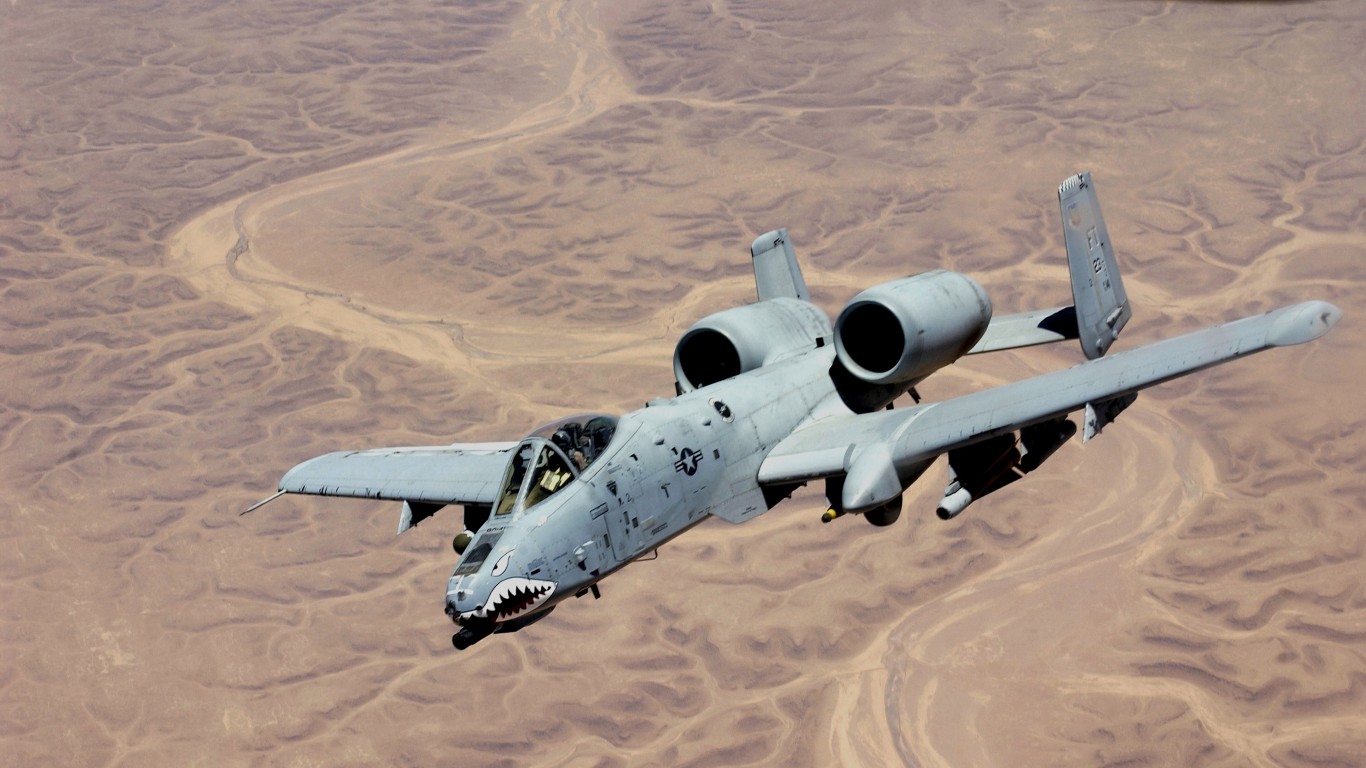
- Type: Close-air support / forward air control
- Year introduced: 1976
- Active aircraft: 270
- Top speed: 439 mph
- Armament: 30mm GAU-8/A gatling gun, Maverick missiles, Sidewinder missiles, rocket pods, drop bombs, cluster bombs, Paveway bombs
Introduced in 1976, the A-10C Thunderbolt II is a specialized close-air support and forward air control aircraft. It is armed with a 30mm GAU-8/A gatling gun, which can fire up to 3,900 rounds per minute, along with a variety of missiles and bombs, including Mavericks and Sidewinders. Built by Fairchild Republic, the A-10 is known for its toughness, earning its nickname as the “Warthog”. One aspect about the A-10 is its “titanium bathtub” cockpit, which provides the pilot with protection from ground fire.
13. F-15 C/E/EX Eagle II
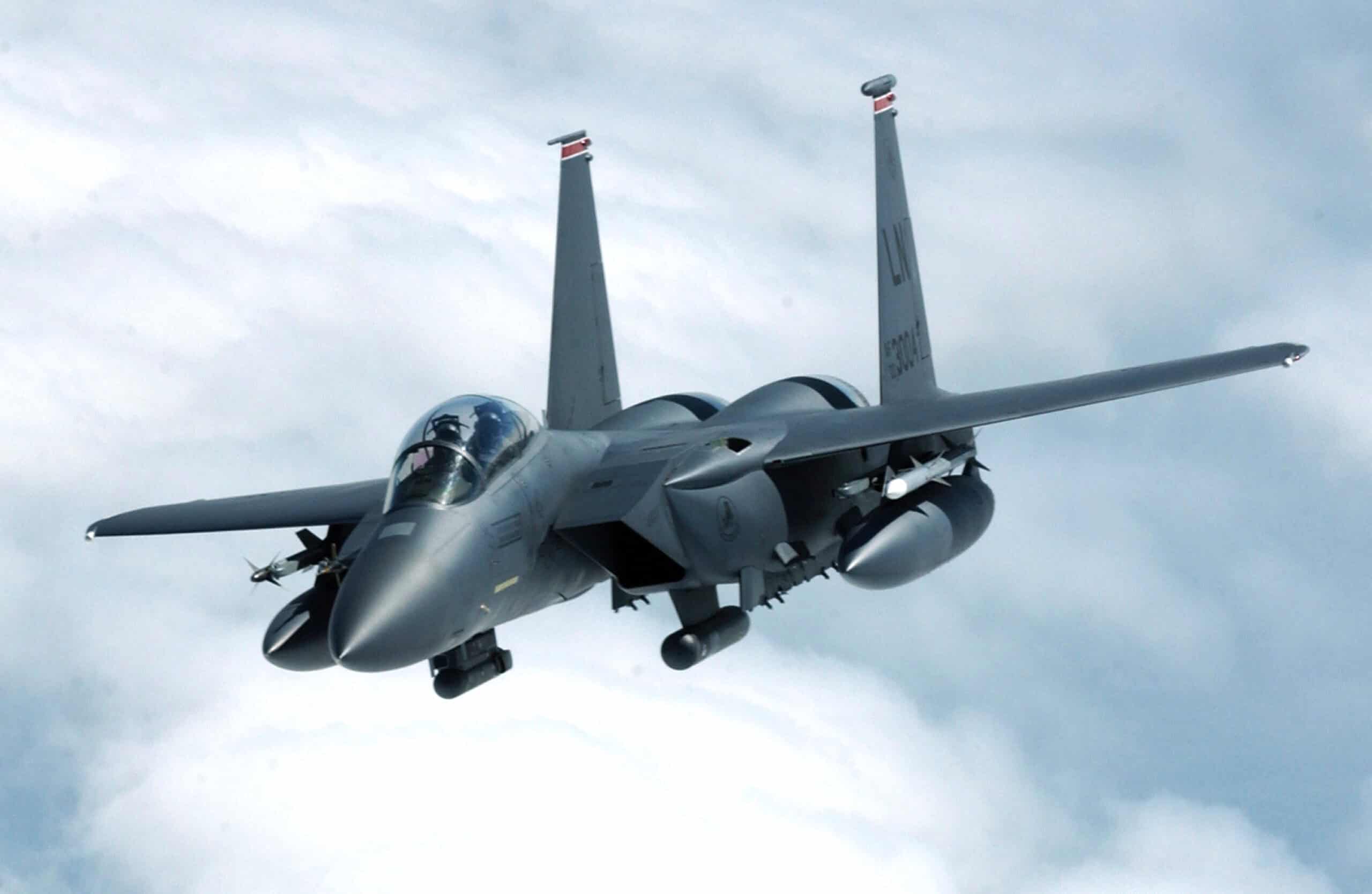
- Type: Air superiority fighter aircraft
- Year introduced: 1976
- Active aircraft: 377
- Top speed: 1,875 mph
- Armament: 20mm M61A1 automatic cannon, Sidewinder missiles, Sparrow missiles, Maverick missiles, HARM missiles, laser-guided bombs, joint direct attack munitions, cluster bombs, nuclear bombs
Developed by McDonnell Douglas (now Boeing) in the 1970s, the F-15 Eagle and Strike Eagle variant stand as some of the most iconic and successful fighter jets in the world. With a top speed over Mach 2, the F-15 can outrun almost anything in the sky. Its twin-engine design provides serious thrust, allowing some variants to carry over 16,000 pounds of ordnance, including air-to-air missiles and bombs.
One thing that stands out with this jet is its combat record. Since its introduction, the F-15 has claimed more than 100 air-to-air victories without a single loss in combat.
The F-15 has been used in several conflicts, including Operation Desert Storm, where it proved its air superiority by downing numerous Iraqi aircraft. The Strike Eagle has seen extensive combat as well, especially in ground-attack operations in Iraq, Afghanistan, and Syria.
12. F-16C Fighting Falcon
- Type: Multirole 4th generation fighter aircraft
- Year introduced: 1978
- Active aircraft: 738
- Top speed: 1,317 mph
- Armament: 20mm M61 automatic cannon, Sidewinder missiles, AMRAAM missiles, Maverick missiles, Penguin missiles, Runway denial bombs, cluster bombs, laser-guided bombs, conventional drop bombs
Introduced in 1978 to the U.S. Air Force, the Fighting Falcon is a multirole fourth generation fighter jet. Over the years this jet has undergone upgrades and improvements, but it is still relatively cheap compared to the newest generation of fighter jets.
It has become popular with many militaries around the world, and many are looking to procure these jets. Early variants of the F-16 sell for roughly $13 million with more recent variants starting between $25 and $30 million. However, the most advanced versions of this aircraft can cost anywhere upwards of $60 million.
The F-16 comes standard with a 20mm internal automatic cannon and can be equipped with a range of air-to-air missiles and air-to-ground missiles. It can reach speeds of roughly 1,300 mph and has an operational range of 2,600 miles. The Fighting Falcon fills a variety of roles for any air force but it is primarily used for interception and general strike missions.
11. S-70 Black Hawk
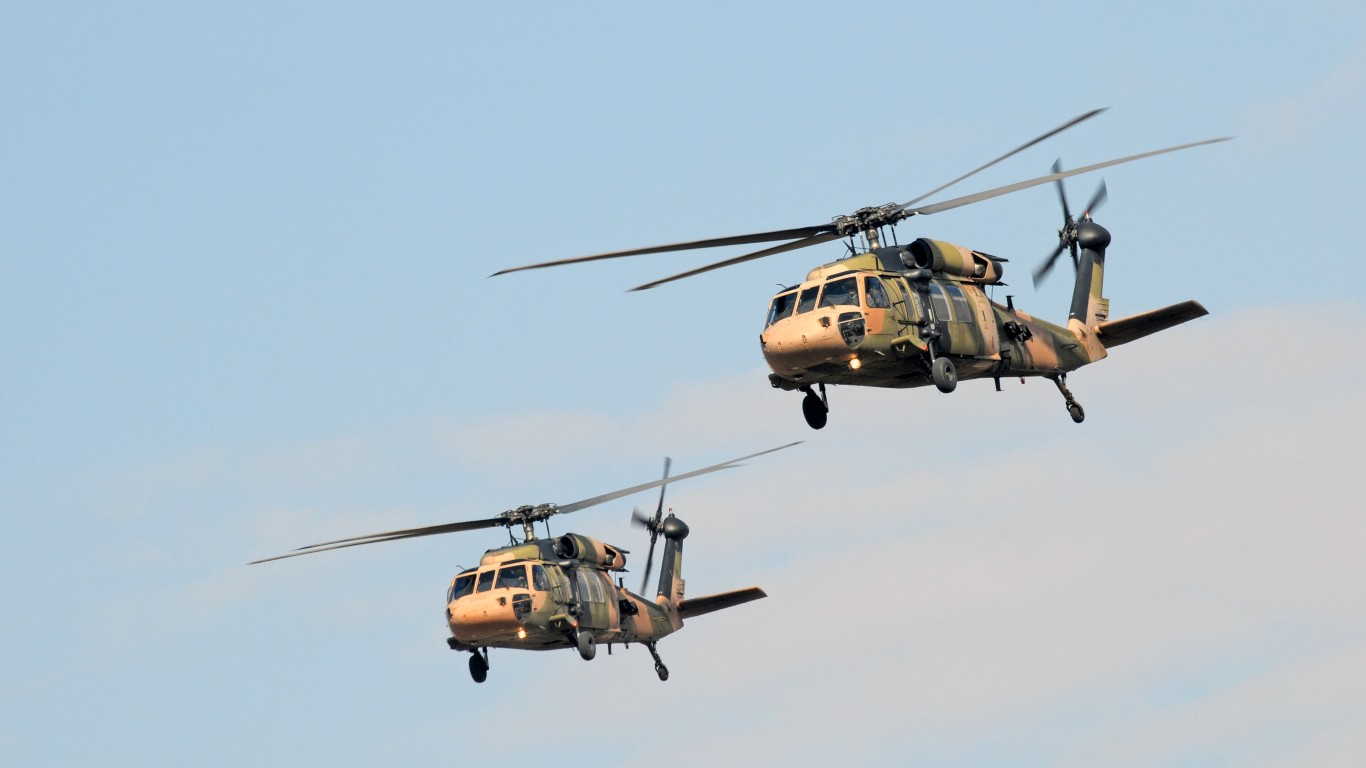
- Type: Medium-lift multi-mission helicopter
- Year introduced: 1979
- Active aircraft: 96
- Top speed: 183 mph
- Armament: 7.62mm machine guns, Hellfire missiles, 12.7mm gatling guns, M134 gatling guns, rocket pods, 30mm chain gun
Black Hawk helicopters have played important roles in conflicts around the globe. One infamous instance was the conflict in Somalia in 1993, particularly the Battle of Mogadishu. The Black Hawk played a significant role in urban combat and casualty evacuation under intense fire. This story would go on to make it as a blockbuster movie famously titled “Black Hawk Down.”
It is by far one of the most iconic helicopters ever built. It is the workhorse of the U.S. military with over a few thousand units currently in service across all branches.
The Black Hawk features twin turboshaft engines, a single four-bladed main rotor, and a four-bladed tail rotor, which allow for top speeds over 180 mph. Typically, this helicopter carries a crew of two pilots and two crew chiefs and can transport up to 11 fully equipped soldiers. In total, the Black Hawk can carry a payload of roughly 9,000 pounds.
10. Mi-171 Hip-H
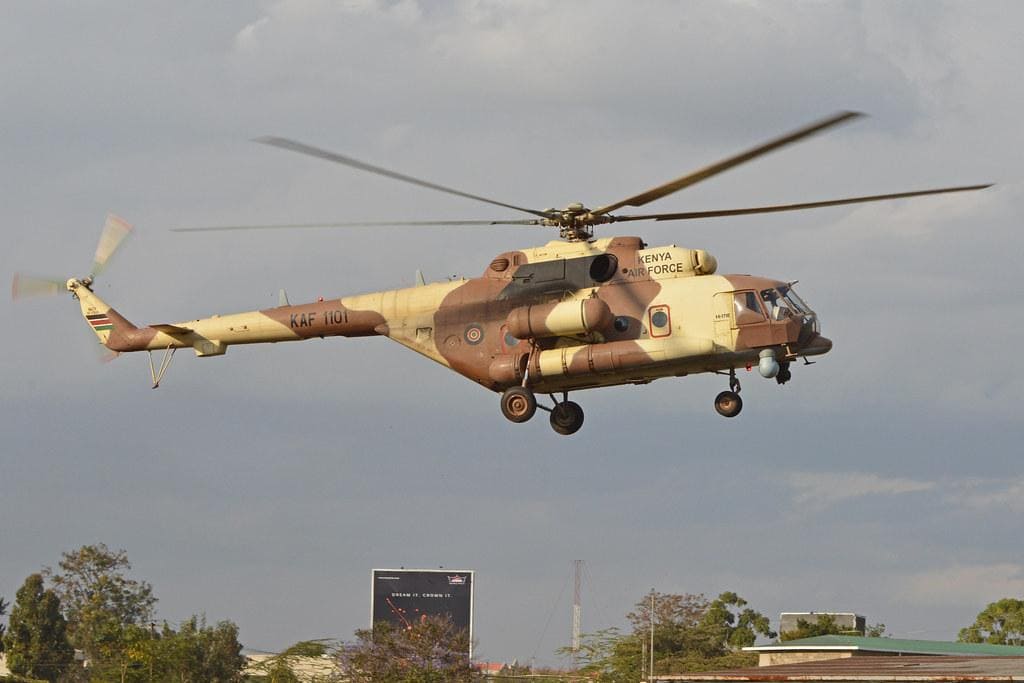
- Type: Medium-lift transport helicopter
- Year introduced: 1981
- Active aircraft: 1
- Top speed: 158 mph
- Armament: Shturm missiles, rocket pods, 23mm cannon pods, 7.62mm machine guns
Originally designed by the Soviets at the Mil Moscow Helicopter Plant, this has been a staple for the Russian Air Force for years. While this is a widely used helicopter for many militaries around the world, the U.S. Air Force only has one. However, American engineering for other more advanced helicopters like the Black Hawk or Apache is more of a priority for the U.S. Air Force.
9. B-1B Lancer
- Type: Strategic heavy bomber
- Year introduced: 1986
- Active aircraft: 42
- Top speed: 833 mph
- Armament: Joint direct attack munitions, general purpose bombs, naval mines, cluster munitions, SRAM missiles, JASSM missiles, JSOW missiles, freefall nuclear bombs
Introduced in 1986, the B-1B Lancer is a strategic heavy bomber that is capable of reaching speeds up to 833 mph, which makes it one of the fastest bombers in the U.S. Air Force. It carries a wide range of armaments, including joint direct attack munitions, general-purpose bombs, JASSM missiles, and even freefall nuclear bombs.
8. B-2 Spirit
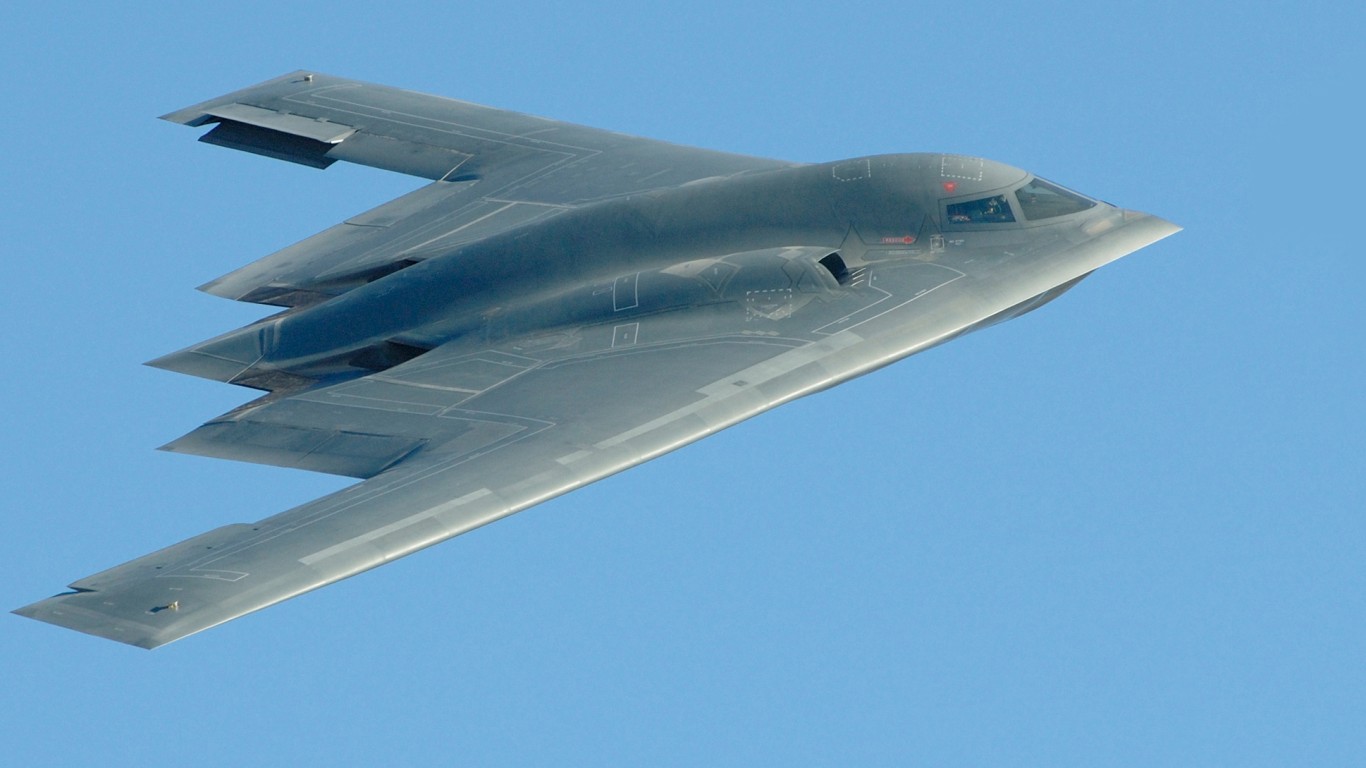
- Type: Strategic stealth heavy bomber
- Year introduced: 1997
- Active aircraft: 17
- Top speed: 628 mph
- Armament: Air-launched cruise missiles, strategic free-fall nuclear bombs, conventional drop bombs, joint direct attack munitions, JASSM missiles
Introduced in 1997, the B-2 Spirit is a strategic stealth heavy bomber with a top speed of 628 mph. It is designed to deliver a wide range of ordnance including nuclear bombs. Although there are only 17 of these aircraft in active service, they can punch far above their class in terms of what they can deliver in payload.
7. Leonardo AW139
- Type: Medium-lift utility helicopter
- Year introduced: 2003
- Active aircraft: 4
- Top speed: 193 mph
- Armament: 7.62mm general purpose machine guns
Originally designed and constructed by Leonardo, the AW139 is used by both the military and civilians. There are currently four in active service of the U.S. Air Force. These helicopters were initially designed for search-and-rescue missions, but they have been adopted for other purposes since then. The military version can equip small machine guns, but its primary designation is not for combat.
6. F-22 Raptor

- Type: 5th generation air dominance fighter aircraft
- Year introduced: 2005
- Active aircraft: 178
- Top speed: 1,599 mph
- Armament: 20mm automatic cannon, Sidewinder missiles, AMRAAM missiles, joint drop munitions, drop bombs, air-launched cruise missiles
The F-22 Raptor is one of the elite fifth-generation aircraft, introduced in 2005. It features some of the newest stealth technology and can hit speeds around Mach 2. It comes equipped with a 20mm automatic cannon standard and can be outfitted with Sidewinder and AMRAAM missiles, as well as joint drop munitions and air-launched cruise missiles.
In addition to its impressive speed and firepower, the F-22 Raptor is known for its unmatched agility and advanced avionics, making it a dominant force in both air superiority and strike missions.
One interesting fact about this aircraft is that the Raptor’s supercruise ability enables it to sustain high-speed flight without the need for afterburners. This sets it apart from most other fighters, which typically require afterburners to exceed the speed of sound. The F-22 Raptor can sustain speeds of Mach 1.5 to Mach 2 in supercruise mode.
5. CV-22 Osprey
- Type: Tilt rotor VTOL aircraft
- Year introduced: 2007
- Active aircraft: 52
- Top speed: 316 mph
- Armament: 7.62mm machine guns, 12.7mm machine guns
Known for its unique ability to take off and land vertically like a helicopter and then adjust its rotors to operate like a turboprop plane, the CV-22 Osprey is one of the more unique aircraft in the U.S. military. It is manufactured by Bell Boeing and plays key roles in U.S. special operations missions like infiltration, extraction, and resupply. The U.S. Navy uses this aircraft extensively for troop deployment and extraction, or even just for logistical purposes. The Osprey also can refuel mid-flight which significantly extends its range for longer missions.
Since its introduction, the CV-22 Osprey has seen action in major operations, including Iraq, Afghanistan, and humanitarian missions worldwide, typically filling a logistical role. In terms of its cargo, the Osprey is capable of carrying up to 24 combat-loaded Marines or 20,000 pounds of internal or external cargo.
4. AC-130W Stinger II
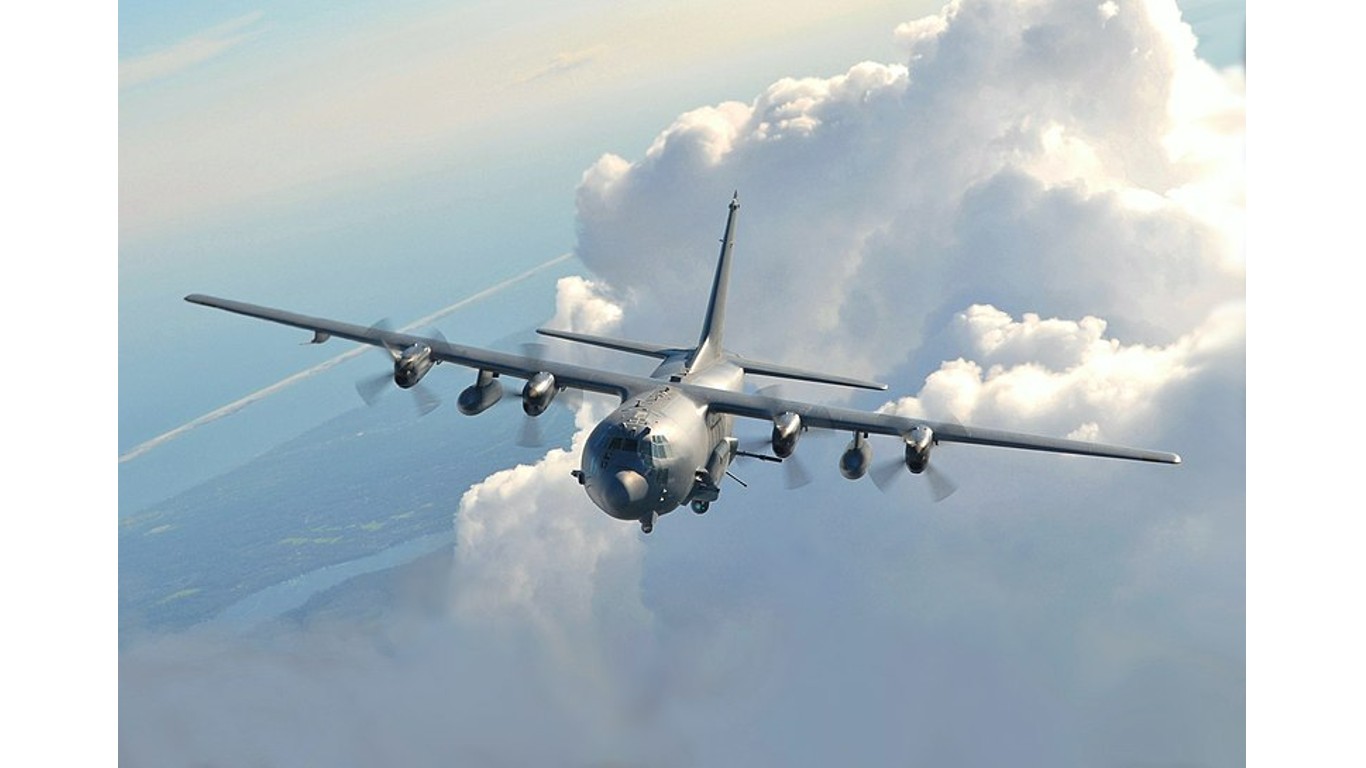
- Type: Special operations fixed-wing gunship
- Year introduced: 2010
- Active aircraft: 3
- Top speed: 300 mph
- Armament: 30mm Bushmaster II GAU-23/A gatling gun, Viper Strike missiles, Griffin missiles, Hellfire missiles
The Stinger II is a step up from the legacy AC-130 gunships, notably integrating advanced missile systems. Built by Lockheed Martin, this gunship only recently entered service in 2010. Armed with a 30mm Bushmaster II GAU-23/A gatling gun, along with Viper Strike, Griffin, and Hellfire missiles, The Stinger II is designed to deliver serious firepower in support of ground forces.
3. F-35A Lightning II

- Type: Multirole 5th generation aircraft
- Year introduced: 2016
- Active aircraft: 234
- Top speed: 1,199 mph
- Armament: 25mm GAU-12/U automatic cannon, Sidewinder missiles, Paveway guided bombs, Rockeye II bombs, Brimstone missiles, Storm Shadow missiles, drop bombs
Introduced in 2016, the F-35A Lightning II boasts a top speed of 1,199 mph and can equip a wide variety of weapons. It is one of the newest fifth-generation aircraft to enter the service. Currently, there are 234 in active service for the U.S. Air Force but hundreds more are on order from Lockheed Martin for the U.S. military at large.
2. AC-130J Ghostrider
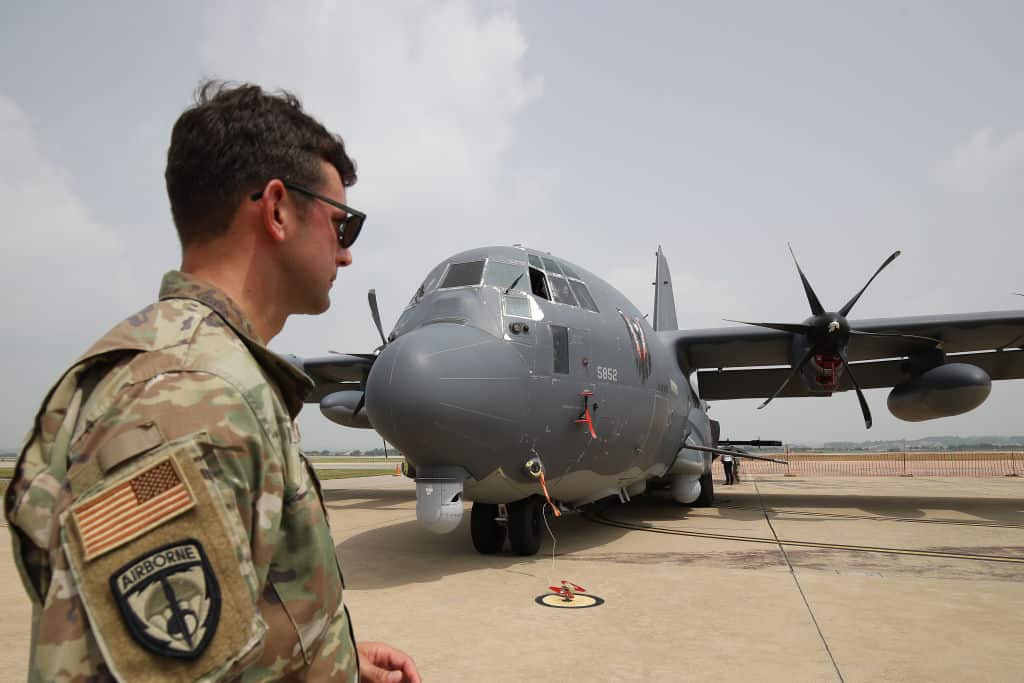
- Type: Ground attack / close-air support
- Year introduced: 2017
- Active aircraft: 29
- Top speed: 416 mph
- Armament: 30mm ATK GAU-23/A automatic cannon, 105mm M102 field howitzer, Griffin missiles, Viper Strike precision-guided bombs, Hellfire missiles, drop bombs
The Ghostrider is the latest in the AC-130 gunship series. Although these gunships do not carry nukes, they can equip practically any other ordnance, even a gun meant for ground artillery. The Ghostrider is easily one of the most heavily armed aircraft in the U.S. Air Force.
Most notably in Ghostrider’s arsenal is its 105mm howitzer, which is typically seen on ground artillery platforms. This big gun delivers serious firepower with pinpoint accuracy from far above the battlefield, giving it an incredible tactical advantage.
Outside of the 105mm howitzer, Ghostrider can equip a variety of missiles like Hellfires or Griffins, precision-guided bombs, or even just the basic conventional drop bombs.
1. B-21 Raider
- Type: Long range strategic stealth bomber
- Year introduced: Expected 2028
- Active aircraft: 100 on order
- Top speed: 621 mph
- Armament: Conventional drop bombs, precision-guided bombs, nuclear-tipped bombs/missiles
Within the next decade, the B-21 Raider is expected to enter service to augment the B-2 Spirit stealth bombers. It will be capable of carrying both conventional and precision-guided bombs, as well as nuclear-tipped bombs and missiles. So far 100 of these stealth bombers are on order, with test flights already having taken place within the past year.
It’s Your Money, Your Future—Own It (sponsor)
Retirement can be daunting, but it doesn’t need to be.
Imagine having an expert in your corner to help you with your financial goals. Someone to help you determine if you’re ahead, behind, or right on track. With SmartAsset, that’s not just a dream—it’s reality. This free tool connects you with pre-screened financial advisors who work in your best interests. It’s quick, it’s easy, so take the leap today and start planning smarter!
Don’t waste another minute; get started right here and help your retirement dreams become a retirement reality.
Thank you for reading! Have some feedback for us?
Contact the 24/7 Wall St. editorial team.
